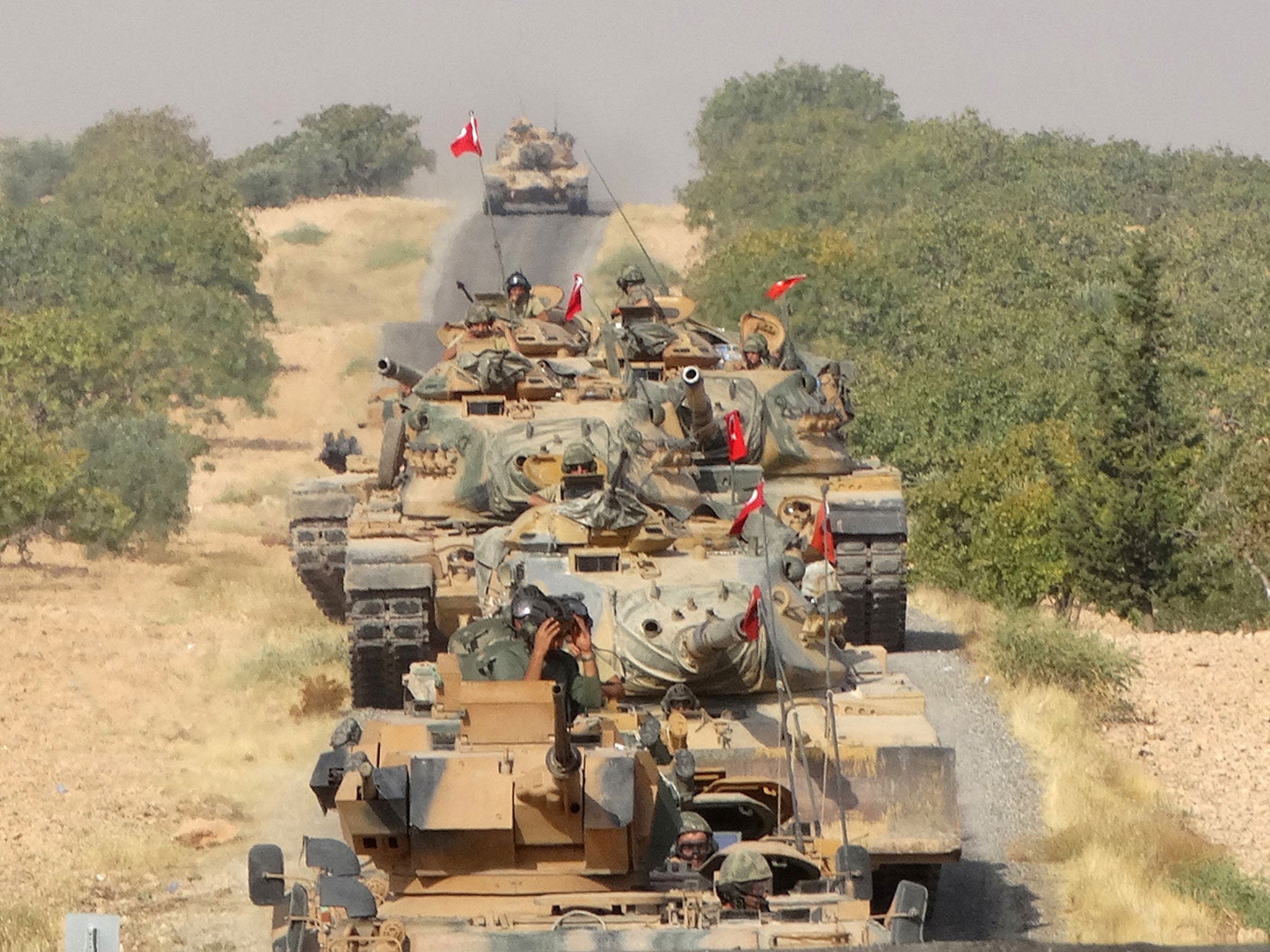Turkey ends 'Euphrates Shield' military operation in Syria, PM says
'Any operation following this one will have a different name'

Your support helps us to tell the story
From reproductive rights to climate change to Big Tech, The Independent is on the ground when the story is developing. Whether it's investigating the financials of Elon Musk's pro-Trump PAC or producing our latest documentary, 'The A Word', which shines a light on the American women fighting for reproductive rights, we know how important it is to parse out the facts from the messaging.
At such a critical moment in US history, we need reporters on the ground. Your donation allows us to keep sending journalists to speak to both sides of the story.
The Independent is trusted by Americans across the entire political spectrum. And unlike many other quality news outlets, we choose not to lock Americans out of our reporting and analysis with paywalls. We believe quality journalism should be available to everyone, paid for by those who can afford it.
Your support makes all the difference.Turkey has ended the "Euphrates Shield" military operation it launched in Syria, Prime Minister Binali Yildirim has said.
However, Mr Yildirim suggested there might be more cross-border campaigns to come.
Last August, Turkey sent troops, tanks and warplanes to support Free Syrian Army (FSA) rebels, push Isis fighters away from its border and stop the advance of Kurdish militia fighters.
"Operation Euphrates Shield has been successful and is finished," Mr Yildirim said in an interview with broadcaster NTV. "Any operation following this one will have a different name."
Under Euphrates Shield, Turkey took the border town of Jarablus on the Euphrates river, cleared Isis fighters from a roughly 100km (60 mile) stretch of the border, then moved south to al-Bab, an Isis stronghold where the Prime Minister said "everything is under control".
Turkish troops are still stationed in the secured regions and along the border.
The number of Turkish troops involved in Euphrates Shield has not been disclosed.
One aim was to stop the Kurdish YPG militia from crossing the Euphrates westwards and linking up three mainly Kurdish cantons it holds in northern Syria.
Turkey fears the Syrian Kurds carving out a self-governing territory analogous to Iraq's autonomous Kurdish region, a move that might embolden Turkey's own large Kurdish minority to try to forge a similar territory inside its borders.
It views the YPG as the Syrian extension of the Kurdish PKK militant group, which has fought an insurgency in Turkey's southeast since 1984 and is considered a terrorist group by both the United States and the European Union.
With the second largest army in NATO, Turkey is seeking a role for its military in a planned offensive on Raqqa, one of the so-called Islamic State's two de facto capitals along with Mosul in Iraq — but the US is veering towards enlisting the YPG.
Turkish President Recep Tayyip Erdogan has said Turkey is saddened by the US and Russian readiness to work with the YPG in Syria.
Subscribe to Independent Premium to bookmark this article
Want to bookmark your favourite articles and stories to read or reference later? Start your Independent Premium subscription today.
Join our commenting forum
Join thought-provoking conversations, follow other Independent readers and see their replies
Comments